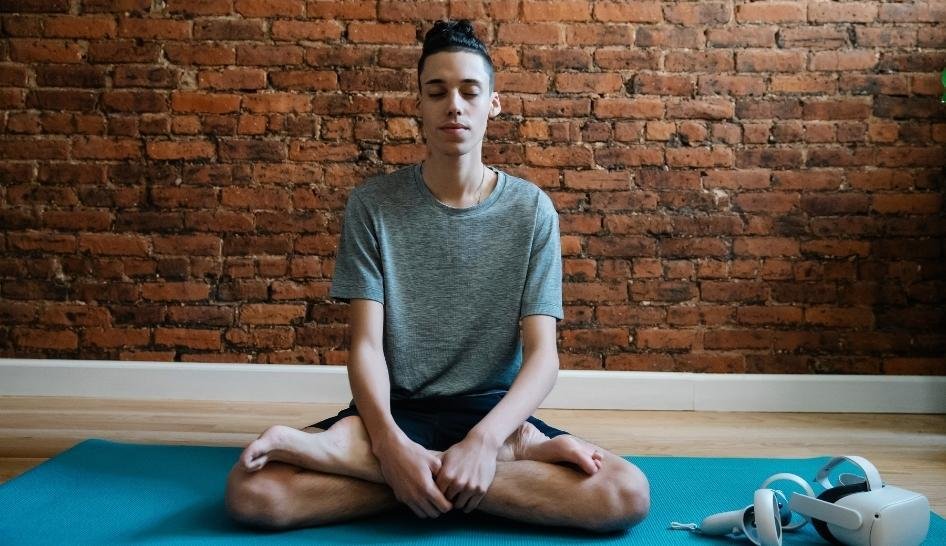The Pressures of Fitness: In an era where image often takes precedence over health, the drive to maintain an ideal physique has become a significant concern, particularly for Generation Z. The pursuit of validation through social media, coupled with societal pressures, is steering many young individuals towards workout burnout and extreme diets, affecting their overall well-being. This article delves into the reasons behind this trend and offers practical solutions for establishing a healthier and more balanced fitness routine.
Table of Contents
The Drive for Validation

The quest for external validation can skew the true purpose of fitness. While exercise and healthy eating are fundamental to maintaining good health, they are increasingly being pursued for the wrong reasons. The focus has shifted from health and wellness to aesthetics and social approval. The desire to look good often outweighs the intrinsic benefits of staying healthy, leading to a host of physical and mental health issues.
The Impact of Social Media
Social media platforms are rife with images of perfectly toned bodies and unrealistic beauty standards, often perpetuated by influencers. This constant exposure can create a sense of inadequacy among young people, driving them to extreme measures to achieve similar physiques. The pressure to garner likes and positive comments can further exacerbate this issue, leading to unhealthy fitness practices.
Societal Pressure and Body-Shaming
Societal norms and the fear of body-shaming compel many to engage in fitness activities for the sake of appearance rather than health. Despite the growing discourse around body positivity, the underlying pressure to conform to certain body standards remains strong. This creates a paradox where people are encouraged to love their bodies but are simultaneously subjected to unrealistic expectations.
The Consequences of Extreme Fitness Pursuits

Workout Burnout
One of the most significant risks of pursuing fitness for the wrong reasons is workout burnout. This occurs when individuals push themselves beyond their physical limits, leading to physical and mental exhaustion. The constant need to meet high expectations set by social media and societal standards can lead to a relentless cycle of over-exercising and inadequate rest.
Extreme Diets
In addition to excessive workouts, extreme diets have become a common method to achieve quick results. These diets often involve severe caloric restrictions or eliminating entire food groups, which can have detrimental effects on one’s health. Nutrient deficiencies, metabolic imbalances, and eating disorders are common outcomes of such dietary practices.
Mental Health Issues
The toll of societal pressure extends beyond physical health. The need to appear fit and attractive can lead to significant mental health issues, including anxiety, depression, and body dysmorphic disorder. The constant comparison to others can create a perpetual state of dissatisfaction, even when physical goals are met.
Recognizing and Addressing Wellbeing Burnout

The growing focus on wellbeing, as highlighted in various reports, has not necessarily translated into improved mental and physical health. According to the 2024 Global Wellbeing Report by Lululemon, a significant number of individuals, particularly from Gen Z and millennials, feel overwhelming societal pressure to maintain their wellbeing. This pressure often leads to wellbeing burnout, characterized by feelings of exhaustion and inadequacy.
Survey Findings and Insights
The survey conducted by Lululemon revealed several key pressure points:
- 61% of people feel overwhelming societal pressure to look well.
- 76% of Gen Z and 71% of millennials feel pressure from society regarding their wellbeing.
- 53% say there’s a lot of mixed information about improving wellbeing.
- 45% are experiencing wellbeing burnout.
- 89% of those experiencing wellbeing burnout identify loneliness as a significant factor.
These findings underscore the need to address the root causes of wellbeing burnout and develop strategies to mitigate its effects.
Strategies to Combat Fitness Pressure and Burnout

Quieting the Noise
One effective strategy to reduce wellbeing burnout is to quiet the noise. This involves limiting exposure to social media and its unrealistic standards. By focusing on personal goals and intrinsic motivations, individuals can shift their attention away from external validation and towards genuine health and happiness.
Doing What Feels Good
Engaging in activities that bring joy and satisfaction, rather than those dictated by societal norms, is crucial. Exercise should be a source of enjoyment and stress relief, not an obligation. Finding activities that one loves can help create a sustainable fitness routine that promotes overall wellbeing.
Inviting Others on Your Journey
Building a supportive community can significantly enhance the experience of pursuing fitness goals. Whether it’s friends, family, or online communities, having a support system can provide encouragement and accountability. Engaging in group activities can also make the process more enjoyable and less isolating.
Building a Sustainable Fitness Routine

Creating a balanced and sustainable fitness routine is key to maintaining long-term health and avoiding burnout. Here are some tips to help you get started:
Establish Achievable Goals
Rather than aiming for perfection, set realistic and individual goals that focus on holistic health. This includes strength, endurance, flexibility, and mental wellness. By setting achievable goals, you can avoid the frustration and disappointment that often accompanies unrealistic expectations.
Pay Attention to Your Body
Listening to your body is essential. Taking breaks and allowing time for recovery is just as important as working out. Overtraining without adequate rest can lead to injuries and burnout. Be mindful of signs of fatigue or discomfort and adjust your routine accordingly.
Balanced Diet and Nutrition
A well-rounded diet is crucial for supporting your fitness goals. Rather than following extreme diets, focus on balanced nutrition that provides all the necessary nutrients. Consulting with a nutritionist can help you develop a diet plan that complements your fitness regimen.
The Pressures of Fitness
| Key Points | Details |
|---|---|
| Social Media Impact | Constant exposure to unrealistic beauty standards creates a sense of inadequacy. |
| Societal Pressure | Fear of body-shaming and societal norms compel fitness pursuits for appearance rather than health. |
| Workout Burnout | Over-exercising and inadequate rest lead to physical and mental exhaustion. |
| Extreme Diets | Severe dietary restrictions can cause nutrient deficiencies and eating disorders. |
| Mental Health Issues | Anxiety, depression, and body dysmorphic disorder can result from constant comparison and pressure. |
| Wellbeing Burnout | Overwhelming societal pressure leads to feelings of exhaustion and inadequacy, particularly in Gen Z and millennials. |
| Strategies | Quieting the noise, doing what feels good, and inviting others on your journey are effective strategies to combat burnout and pressure. |

The Pressures of Fitness Frequently Asked Questions (FAQs)
- What are the signs of workout burnout?
- Answer: Signs of workout burnout include chronic fatigue, decreased performance, irritability, and a lack of motivation to exercise.
- How can I avoid extreme diets?
- Answer: Avoid extreme diets by focusing on balanced nutrition and consulting with a nutritionist to develop a sustainable eating plan.
- What can I do to improve my mental health while pursuing fitness goals?
- Answer: Prioritize activities that you enjoy, set realistic goals, and ensure you have a support system in place. Taking breaks and practicing mindfulness can also help.
- How can social media impact my fitness journey?
- Answer: Social media can create unrealistic expectations and pressure to conform to certain standards. Limiting exposure and focusing on personal goals can help mitigate its impact.
- What is wellbeing burnout and how can I combat it?
- Answer: Wellbeing burnout is the feeling of exhaustion and inadequacy due to overwhelming societal pressure. Combat it by quieting the noise, doing what feels good, and building a supportive community.
The Pressures of Fitness Conclusion
In conclusion, the pursuit of fitness should be driven by the desire for health and well-being rather than societal pressures and external validation. By focusing on balanced, sustainable practices and setting realistic goals, individuals can avoid workout burnout and extreme diets. Remember, true health encompasses both physical and mental well-being, and it’s essential to listen to your body and mind in this journey.
Read More Like This: Click Here
Read This Also: The Incredible Brain Benefits of Exercise


1 thought on “The Pressures of Fitness: Understanding the Impact on Gen Z’s Health 2024”